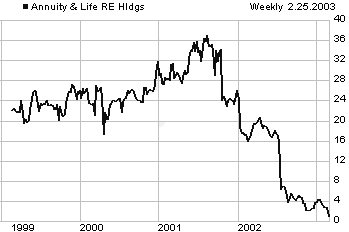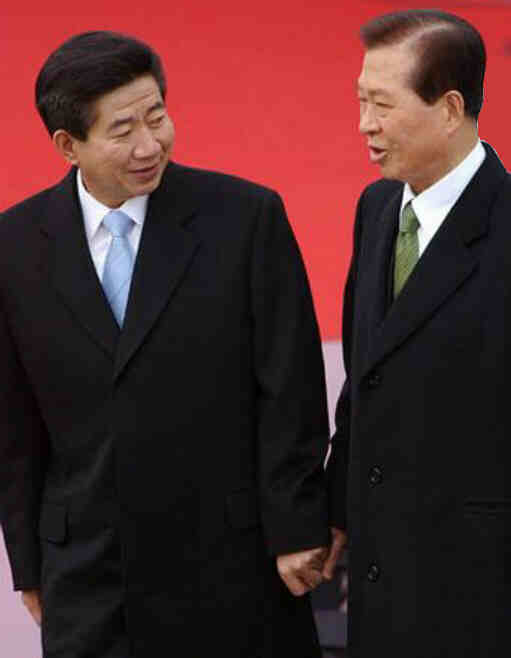^
1969 Bui Van Vat, his wife Luu Thi Canh, two of their
granddaughters, a grandson, and some 15 other unarmed Vietnamese women and
children, massacred by US Navy Seals, in Thanh Phong.
On 25 April 2001 a reporter's two-year investigation
forces ex-US-Senator Bob Kerrey to admit a (probably greatly minimized)
murderous role as a member of the Navy Seals leading a mission in Vietnam
that somehow went horribly wrong. As an inexperienced, 25-year-old lieutenant,
Kerrey led a commando team on a raid of an isolated peasant hamlet called
Thanh Phong in Vietnam's eastern Mekong Delta. While witnesses and official
records give varying accounts of exactly what happened, one thing is certain:
around midnight in the night of 25 to 26 February 1969, Kerrey and his men
killed at least 13 unarmed women and children. The operation was brutal.
In the winter of 1969, a couple of days after
the Super Bowl, a military plane lifted off from North Island Naval Air
Station in Coronado, California. In it were Kerrey and his team, on their
way to Vietnam. Seals (the name stands for Sea-Air-Land units) commandos
began as underwater demolition teams in the Second World War. During the
Vietnam era, they evolved into special forces units, trained to operate
behind enemy lines, collect intelligence and carry out assassinations. Officially,
Kerrey's group was called Delta Platoon, Seals Team One, Fire Team Bravo.
Unofficially, they were Kerrey's Raiders. Only two of the men, Mike Ambrose
and Gerhard Klann, had previous experience on Seals teams in Vietnam. The
others were William H. Tucker III, Gene Peterson, Rick Knepper, a medic
named Lloyd Schreier and Kerrey himself.
Delta
Platoon was assigned to the Navy's Task Force 115, based at Cam Ranh Bay
and commanded by Capt. Roy Hoffmann.
For
several weeks, Kerrey and his team operated in the relatively safe environs
of Cam Ranh Bay, the Navy's largest base in what was then South Vietnam,
about midway up the coast. Then they began looking for a true war mission.
They moved south to Cat Lo, a regional Navy command post where one of Hoffmann's
senior deputies, Paul Connolly, would oversee their missions. The Navy kept
a fleet of "swift boats" a few kilometers away, in the port of Vung Tau
— 50-foot, aluminum-skinned crafts equipped with two .50-caliber machine
guns and twin 480-horsepower Detroit Diesels — that moved Kerrey's
squad on missions in the Mekong Delta.
Vung
Tau was the stepping-off point for operations in the "Thanh Phu Secret Zone,"
in the tropical Mekong Delta, about 120 km southeast of Saigon. It was considered
among the most dangerous parts of Vietnam. Five of its eight villages —
including Thanh Phong — were said to be under the control of the rebel
Vietcong forces.
Much of the Thanh
Phu district was a "free-fire zone," where peasants who did not relocate
to government refugee centers, called "strategic hamlets," were labeled
as Vietcong or as enemy sympathizers
Thanh
Phong was a village of between 75 and 150 people on the South China Sea.
It consisted of groups of four or five hooches (thatch huts) strung out
over about a 500 m of shoreline. On Feb. 13, 1969, Kerrey's team entered
a section of Thanh Phong, searched two hooches and interrogated 14 women
and small children, looking for the village secretary.
Kerrey's
squad would not return until Feb. 25, when intelligence sources again indicated
that the village secretary would be holding a meeting, this time with a
Vietcong military leader.
On Feb.
25, the district chief, Tiet Lun Duc, issued a blunt warning to the area's
villagers. This was in response to an atrocity, in which two Vietcong were
said to have thrown a grenade into a hooch at 02:00, killing a 5-year-old
and wounding a number of others. Duc said: "We want people to be government
of Vietnam. Come out with us, and we will take this area back. You who do
not come out, we will consider you to be Vietcong. You are the enemy. You
will die."
"It's entirely possible
that I'm blacking a lot of it out," Kerrey admitted in an April 2001 interview.
A more reliable version, would be given by Kerrey's most experienced commando,
Gerhard Klann, consistent with the accounts given in interviews with one
Vietnamese woman, Pham Tri Lanh, who claims to have witnessed the whole
tragedy and with two people who say they are relatives of the victims.
As Kerrey's commando approached Thanh Phong
that night, they came upon a hooch not mentioned in their intelligence reports.
In it were an old man, an old woman, and three children under 12. Ordered
by Kerrey, the commando killed them with knives, “to preserve the secrecy
of the mission.”
The Vietnamese
woman, Pham Tri Lanh, witnessed all these killings. Then 30 years old and
the wife of a Vietcong fighter, she quickly snuck up on the scene at the
first hooch after hearing cries. "I was hiding behind a banana tree, and
I saw them cut the man's neck, first here and then there," she says. "His
head was still attached at the back." She also saw the commandos kill a
woman and three children with their knives. Lanh says that the man and woman
were the grandparents of the three young children. A woman claiming to be
a relative of these victims showed a graveyard where a man named Bui Van
Vat, his wife, Luu Thi Canh, and, in three small graves, their grandchildren
— two girls and a boy — are buried. The date on the adults' gravestones,
which were erected 10 years after the fact, is 24 February 1969.
About 15 minutes later, the team arrived at
the cluster of hooches. The squad rounded up women and children from a group
of hooches on the fringes of the village. They questioned them about the
whereabouts of the village secretary. A quick search of the hooches turned
up nothing.
Approaching the village
the commando fired rockets and guns, 1200 round of ammunition in all. Arriving
at the hooches they found some 14 dead women and children. Sometime later
they fired at several people who were running away.
To
prevent these people from accusing them of the first killings, or of alerting
the Viet Cong and endanger the commando, deep in enemy territory, they decided
to kill them. Lanh, who had been checking to see that her children were
safe, crept close enough to witness what happened next. Kerrey gave the
order and the team, standing between 3 and 5 m away, started shooting —
raking the group with automatic-weapons fire for about 30 seconds. They
were moans, so they began firing again, for another 30 seconds.
There
was one final cry, from a baby. The baby was the last one alive. There were
blood and guts splattering everywhere.
On
the boat going out, the commando radioed that they had killed 21 Viet Cong,
no mention of civilians.
Reports of
the atrocities were not investigated. The Navy awarded Kerrey a Bronze Star
for this mission. Later Kerrey was wounded and lost the lower part of a
leg. He then received the Medal of Honor, which he now admits was undeserved.
Nine months later, news broke about the slaughter
of at least 350 innocent villagers at My Lai by forces under the command
of Lt. William L. Calley Jr. Calley, who would ultimately be convicted of
the premeditated murder of 22 unarmed civilians, was sentenced to life at
hard labor but served only three years under house arrest at Fort Benning.
My Lai was a watershed, an event that finally convinced great segments of
the American public that the Vietnam War was immoral, if not unwinnable.
And in February 1970, about a year after Thanh Phong, a five-man Marine
patrol entered the hamlet of Son Thang, about 20 miles south of Danang,
and killed 16 women and children. The marines were charged with murder and
prosecuted. Two of the accused, including the leader, were acquitted; one
was given immunity and two were convicted of murder. Neither served more
than 10 months in jail.
Gary Solis,
a war-crimes expert at the US Military Academy at West Point, who wrote
a book on Son Thang, says that atrocities were more common in Vietnam than
we knew. While there were 122 convictions for war crimes in Vietnam, he
says, "In my opinion, war crimes occurred that were never reported." |
 On
a February 25:
On
a February 25: